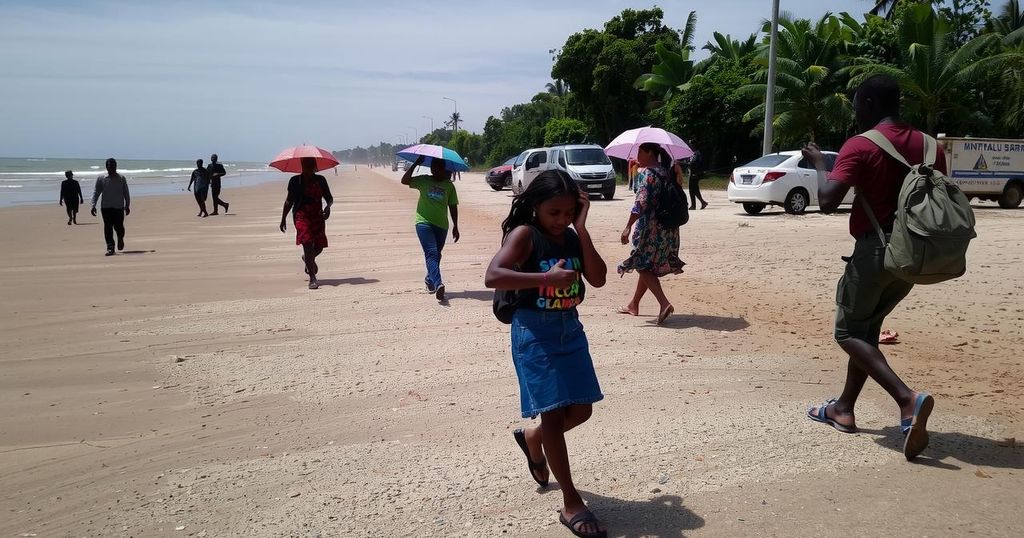Over 13,000 Mozambicans have fled to Malawi amidst escalating violence following a disputed presidential election. Many asylum-seekers face significant challenges, including food scarcity and inadequate shelter. Aid organizations are mobilizing resources to assist vulnerable groups, while plans for better accommodations are underway.
In response to violence stemming from the disputed October presidential election, over 13,000 individuals have sought refuge in Malawi, predominantly women and children. The influx has raised concerns regarding the adequacy of resources to support the asylum-seekers in makeshift camps. Sofia Jimu, a traditional leader and refugee, highlighted food scarcity at the evacuation center, reporting that several children collapsed due to hunger, although aid has begun to arrive. The situation was exacerbated following the Constitutional Council’s declaration of Daniel Chapo from the ruling Frelimo Party as the election winner, a result contested by runner-up Venancio Mondlane of the opposition Podemos party. The ongoing unrest has reportedly claimed more than 200 lives since the protests erupted.
The situation in Mozambique escalated after the contentious presidential election results of October 9, 2023. The announcement of Daniel Chapo as the winner by the Constitutional Council ignited further political tension, leading to violent protests and a significant humanitarian crisis. As a consequence, thousands of Mozambicans have fled to neighboring Malawi, seeking safety from the turmoil. The transitional phase in Malawi centers around providing immediate assistance and accommodation to the new arrivals, while addressing significant resource shortages amidst growing numbers of refugees.
The recent influx of over 13,000 Mozambicans into Malawi showcases the urgent humanitarian crisis following the disputed presidential election. Efforts are underway by various organizations to provide essential support, particularly focusing on the most vulnerable populations, such as women and children. The situation remains precarious as authorities mobilize resources to ensure the well-being of these asylum-seekers and address their immediate needs.
Original Source: www.voanews.com






